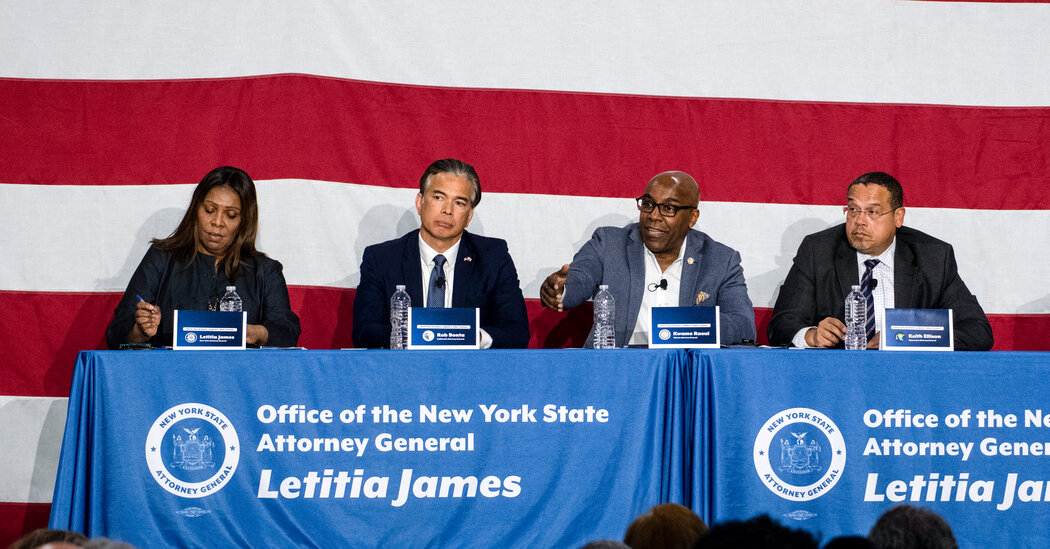
Ever since President Trump took office, New York’s attorney general, Letitia James, has been suing his administration to block policies that she says threaten access to health care or violate privacy laws and the Constitution.
Just nine days ago, her office sued the Department of Homeland Security and its head, Kristi Noem, after it diverted millions in antiterrorism funds from the Metropolitan Transportation Authority, which runs New York’s subways, buses and commuter rails. On Oct. 1, a judge temporarily blocked the transfer of money.
“My office will never allow this administration to jeopardize New Yorkers’ security,” Ms. James, a Democrat, said.
More often, though — almost 40 times since January — Ms. James has been joining other Democratic state attorneys general to form coalitions to sue the Trump administration. In some cases, more than 20 states joined in a single lawsuit.
Ms. James’s office says it has led or helped lead 17 of those suits.
On Thursday, the Trump Justice Department won an indictment of Ms. James on federal charges related to mortgage paperwork on a home she owns in Virginia. Stephen Gillers, a legal ethics expert at New York University School of Law, said that the charges do not preclude Ms. James from pursuing litigation against Mr. Trump.
“Nothing in the ethics rules for lawyers will prevent James from continuing to participate in or lead the group of states that sues the Trump administration,” he said. “Whether or not she does so is up to her and to the other members of the group.”
Ms. James’s office has issued a steady stream of news releases announcing the suits and trumpeting her opposition to the president.
In one such lawsuit, by a coalition of 19 states and the District of Columbia, a judge in July temporarily blocked the Trump administration’s wholesale reorganization of the Department of Health and Human Services, which could have led to the firings of thousands of federal health workers.
In another, a judge temporarily blocked the Department of Agriculture from demanding that states surrender sensitive personal information about millions of food stamp recipients.